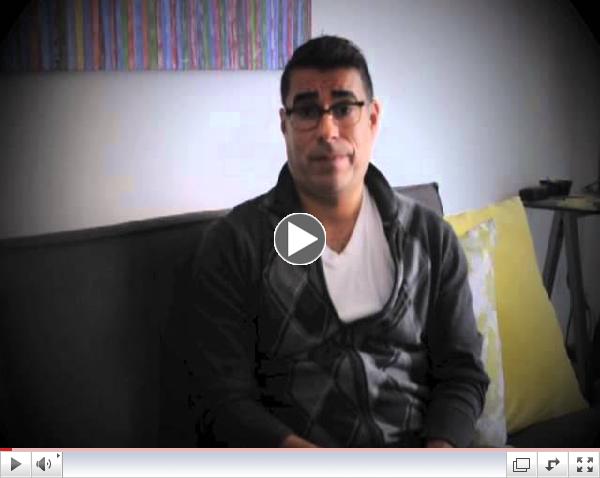|
|
|
|
|
|
Professional advice
& practical solutions
Copyright 2013. All rights reserved.
|
|
|
|
|
What Would Change If You Were Kinder to Yourself?
If you knew that being kinder to yourself would improve the quality of your life by two percent, would you do it? What about three percent or more? With all that we now know about brain function and self-directed neuroplasticity, the possibilities
for improving our lives, and the lives of others, are bountiful!
In this issue we will explore what it means to be self-compassionate, introduce self-compassion-based exercises, and discuss the proven benefits of adding self-compassion to the basic routines of your everyday life. In other words, my intention is to use what I've assembled here to help you tip the scales of happiness and wellbeing in your favor using researched-based tips and tools. So, how about it? Are you willing to invest a few minutes of your time to explore this possibility? I hope so!
Well wishes,
Tony Madril
Editor
Follow me on Twitter @tmadrilmsw
|
|
 |
|
Newsletter Archive
|
Special Focus: Strengthening Your Resilience to Stress
Special Focus: Mindfulness Practice in Daily Life
Special Focus: Helping LGBT Youth
|
| About Tony |
To learn more about Tony,
visit his website at:
|
|
|
| What is Self-Compassion? |
Rather than give you a quick definition of self-compassion, which can seem flat and uninspiring, I will equip you with a meaningful description of how you might understand self-compassion through the lens of your own experience. In fact, Kristin Neff, the top researcher on self-compassion in the United States suggests that to truly understand self-compassion, you must first recall what it feels like to have compassion for others. This involves the act of noticing another person's pain; feeling moved by their affliction, and, then, offering them some form of understanding and kindness, which includes refraining from judging them for their situation and shortcomings in life. After all, they're only human.
Similarly, practicing self-compassion means offering yourself the same type of unconditional positive regard you would extend to a loved one in pain. Namely, noticing when it is that you are suffering, feeling moved by this realization, and, then, offering yourself some form of understanding and kindness--recognizing that suffering and imperfection are an inherent part of the human condition.
Now, to hear the description of self-compassion in Dr. Neff's own words, click the link below...
 | | "Self-Compassion" by Kristin Neff, Ph.D. |
|
|
The Proven Benefits Self-Compassion
|
Research is starting to examine self-compassion using experimental manipulations as well as the  application of self-compassion techniques used in self-compassion training programs. This growing body of research suggests that self-compassion is strongly linked to psychological health. In particular, higher levels of self-compassion have been associated with the following: application of self-compassion techniques used in self-compassion training programs. This growing body of research suggests that self-compassion is strongly linked to psychological health. In particular, higher levels of self-compassion have been associated with the following:
- Greater life satisfaction
- Emotional intelligence
- Social connectedness
- Happiness
- Optimism
- Wisdom
And, higher levels of self-compassion is associated with LESS self-criticism, depression, anxiety, fear of failure, thought suppression, perfectionism, performance goals, and disordered eating behaviors.
---------------------------------------------------------------
References:
Neff, K. (2011). Self-compassion, self-esteem, and well-being. Social and Personality Psychology Compass, 1-12, 10.1111/j.1751-9004.2010.00330.x
|
|
The Tools of Self-Compassion
| | I would argue that theory is only has helpful as it is practical. That said; the following are two self-compassion-based exercises that are as practical as they are guided by scientific study into the benefits of self-compassion, and informed by age-old philosphical practices taught in the East. You can use them anytime, anywhere!
NFL
Being too hard on yourself? Try practicing self-compassion by using the three steps of NFL:
Step one:
NOTICE
Notice that your being hard yourself about a mistake you've made or something you're not particularly proud of.
Step two:
FORGIVE
Forgive yourself for whatever shortcoming you've identified. "Too error is human."
Step three:
LEARN/LET GO.
Learn what you can from the experience and then gradually "let it go" by practicing a mindfulness technique, such as focusing on your breath for a minute or two.
* * *
The Three Components of Self-Compassion
The second tool of self-compassion involves activating the "Three Components of Self-Compassion," which is described in the video below:
 | | "Tools of Self-Compassion" by Tony Madril, M.S.W. |
The Three Components of Self-Compassion
1. Notice that Your Are Suffering
2. Embrace Your Suffering With Kindness
3. Recognize That You Are Not Alone in Your Suffering
-------------------------------------------------------------------------
References:
1. Neff, K. (2011). Self-Compassion. New York, NY: HarperCollins Publishers.
2. Brahm, A. (2011). The Art of Disappearing. Boston: Wisdom Publications.
|
|
|

Los Angeles Behavioral Health & Wellness Office
10350 Santa Monica Blvd., Suite 310, Los Angeles, 90025
Research-based psychotherapy for adolescents, adults, and families of diversity.
(323) 315-2598 
|
|
*I offer clients counseling techniques that are informed by self-compassion.
|
|
|
|
|
|